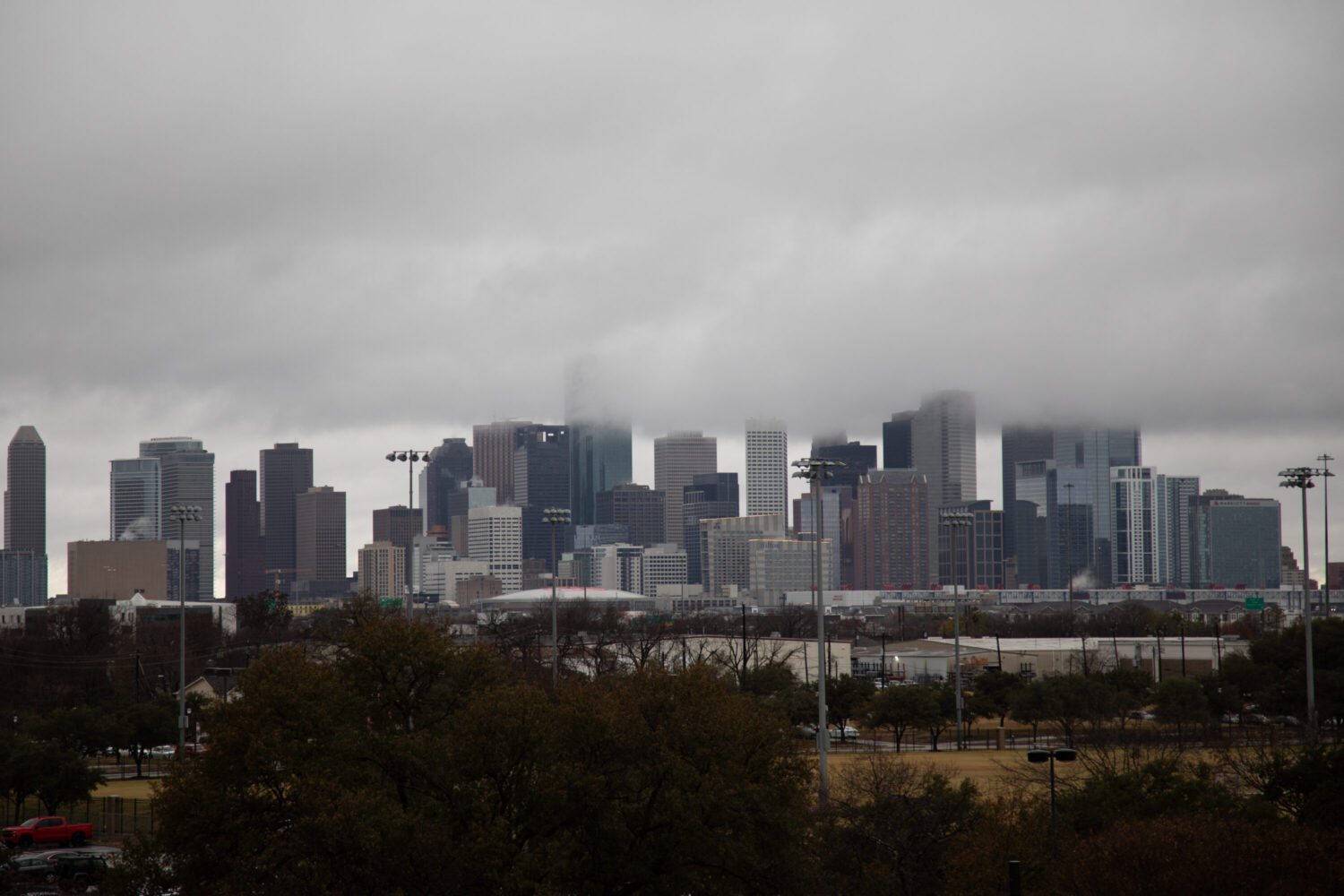Seasonal Affective Disorder (SAD) in Houston: Understanding the Symptoms and Treatment Options
Houston’s Skyline
Daisy Espinoza / Houston Public Media
Houston’s skyline is partially covered by clouds on Jan. 23, 2024.
What is Seasonal Affective Disorder (SAD)?
As the days get shorter and the weather gets cooler, symptoms of seasonal affective disorder (SAD) may become more common. According to the National Institute of Mental Health, symptoms might include fatigue and feelings of hopelessness. Oversleeping, overeating, and social withdrawal are all common patterns for those who experience SAD.
Is SAD Common in Houston?
Dr. Asim Shah, a professor and the executive vice chair of psychiatry and behavioral sciences at Baylor College of Medicine, said while SAD tends to be associated with the cold weather, it’s still possible for Houstonians to be diagnosed with SAD.
"Houston usually has a very mild winter, but it changes," Shah said. "A few years ago also, we had a lot of cloudy weather. Meaning, we didn’t see a lot of sun. If the weather is like that, people can suffer from seasonal affective disorder."
A Rarer Variant of SAD
The American Psychiatric Association estimates about 5% of adults experience SAD. Shah said a rarer variant of SAD also has the potential to exist in the Houston region.
"In the last few years, we saw a second variant of seasonal affective disorder because of excessive sun," he said. "Those symptoms are slightly different from winter seasonal affective disorder. Irritability, agitation, anger, mood swings, getting a little snappy."
Summer SAD: A Less Common but Still Important Variant
The years 2023 and 2011 are known to be Houston’s hottest summers. According to the Center for Addiction and Mental Health in Canada, why some people might develop summer SAD is still unknown. However, some possible contributing factors might include heat, humidity, and longer days.
Treatment Options for SAD
According to Baylor College of Medicine, routine exercise can help ease symptoms of seasonal affective disorder. Exercise helps the body release ‘happy hormones’ like dopamine and serotonin. Shah said routine provides structure and predictability.
"People who have emotional disorders, psychiatric disorders, usually do not have structure in life and they easily fall into the trap of anxiety and depression," he said. "Structure gives them a place to breathe."
Conclusion
Seasonal affective disorder is a serious mental health condition that can affect individuals in Houston and around the world. It’s essential to be aware of the signs and symptoms of SAD and to seek professional help if you or someone you know is experiencing them. With the right treatment and support, individuals can manage their symptoms and improve their overall well-being.
FAQs
Q: What are the common symptoms of SAD?
A: Fatigue, feelings of hopelessness, oversleeping, overeating, and social withdrawal.
Q: Can SAD occur in Houston?
A: Yes, while SAD is often associated with cold weather, it’s still possible for Houstonians to experience it.
Q: What are the treatment options for SAD?
A: Routine exercise, therapy, and medication can help ease symptoms of SAD.
Q: How common is SAD?
A: The American Psychiatric Association estimates about 5% of adults experience SAD.




